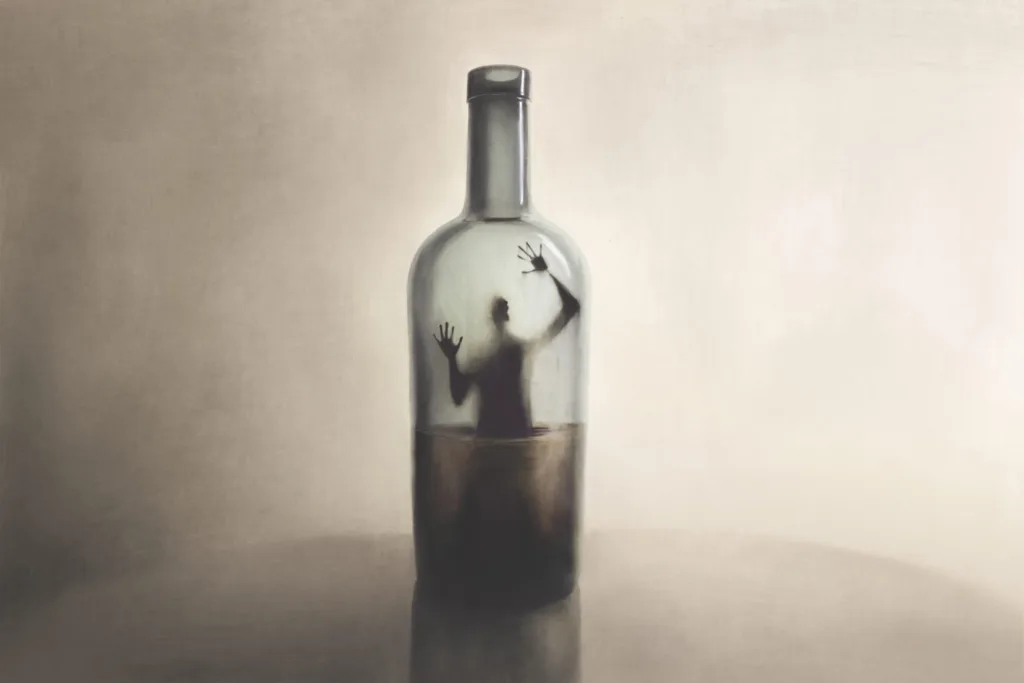Understanding the “Why” Behind Veteran Dual Diagnosis Statistics

After their time in the military, veterans face numerous difficulties. Readjusting back into civilian life presents a variety of complications and the situations military men and women were forced to face and handle while in the military often complicates their mental health.
For many veterans, as a result of mental health struggles, poor coping mechanisms are sought out to handle unpleasant symptoms. Understandably, this can lead to a worsening of problems, most of known as co-occurring disorders.
What is a co-occurring disorder?
A co-occurring disorder (also known as dual diagnosis) is when an individual suffers from a mental health condition and a substance use disorder simultaneously. One may battle post-traumatic stress disorder (PTSD) and alcohol use disorder (AUD), depression and addiction or opioid use disorder and anxiety, for example.
Both disorders do not happen out of the blue, however; most of the time one leads to the development of the other. For example, a veteran may be struggling with the symptoms of PTSD and be inclined to dull these symptoms through alcohol consumption.
Or, a veteran may be on long-term opioid use as a result of an injury – this may lead to anxiety about the opioid use or stress about never fully recovering.
Co-occurring disorders are challenging as they fuel each other; this makes recovery difficult (but not impossible) as it requires an intensive treatment plan set to address both disorders. Otherwise, if only one disorder is treated, most often relapse will occur as a result of not treating the other disorder.
Common co-occurring disorders in the veteran community
Veterans are faced with much when leaving military service. Unfortunately, because of certain taboos and stereotypes, many veterans do not seek the right help and struggle to handle the complications they may face. For this reason, certain mental health conditions and co-occurring disorders are more common among the veteran community.
According to the US Department. of Veteran Affairs, PTSD and substance use disorders (SUD) are one of the most common to co-occur. Statistics say, “In a study of Operations Enduring Freedom (OEF) / Iraqi Freedom (OIF) / New Dawn (OND) Veterans, 63 percent of those diagnosed with alcohol use disorder (AUD) or other SUD also had a diagnosis of PTSD. Among Veterans diagnosed with AUD and another SUD, the rate of PTSD diagnosis was 76 percent.”
According to a survey completed in 2019 of the most commonly abused illicit substances, marijuana ranked the highest with 12.8 percent (2.6M) of veterans, followed by psychotherapeutic drugs ranking at 3.9 percent (801k) and in third place, cocaine at 1.1 percent (233k).
From the same survey, of those who battled a mental illness, 35.2 percent of veterans used illicit drugs, 24.8 percent used marijuana, 31.2 percent binged alcohol and 30.1 percent used cigarettes, as compared to those who did not have a mental illness (13.2 percent, 10.8 percent, 20.9 percent and 16.4 percent respectively).
Why do co-occurring disorders occur?
There is no one cause of a co-occurring disorder. Some individuals are more prone to developing a substance use disorder as a result of mental health history (including any pre-existing mental health conditions); family history; environment and culture. For example, even though drinking is not encouraged in the military, it remains a prevalent aspect of the culture.
Additionally, men and women who were deployed or in active combat are at a much greater risk for developing a mental health and/or substance use disorder. This is often due to witnessing graphic violence, suffering from an injury or losing a friend in the service. Oftentimes, these situations have lasting effects which significantly harm the mental health of the individual.
To cope with these symptoms, some men and women will, instead of seeking treatment, attempt to self-medicate through the use of substances. While substances do have the ability to “take the edge off” certain symptoms, the effects are not long-lasting and do not address the root problem – in fact, they often make the root problem worse.
Addressing veteran mental health
Unfortunately, a layer of stigma surrounds the idea of seeking mental health treatment, meaning the majority of veterans do not get the help they need to overcome the mental health conditions they are battling. This can lead to a worsening of the conditions and a serious decline in physical health and overall quality of life.
Many veterans feel like seeking treatment will put their careers at risk, that they won’t receive the social support needed to succeed and/or because they have an ingrained belief that they are responsible for dealing with their problems on their own. To get veterans the help they need, it’s important to debunk these myths.
Seeking help will not put any careers at risk – oftentimes treatment programs are discreet and flexible enough to fit into personalized schedules so that the individual can easily maintain their obligations.
Many veterans have found success in support groups, meaning that they are surrounded by a community of like-minded individuals seeking treatment and sharing similar stories. While it takes a huge step in humility to share one’s story with a group, the benefits of doing so are immeasurable.
Finally, no one, veteran or not, needs to face their struggles with mental health alone. Therapists are trained to help individuals address their mental health concerns, and treat co-occurring disorders for maximum recovery and maintained sobriety.
To get in touch with a counselor today, contact Pyramid Military Therapy by calling 814-631-5676 or contact us online to learn more.



